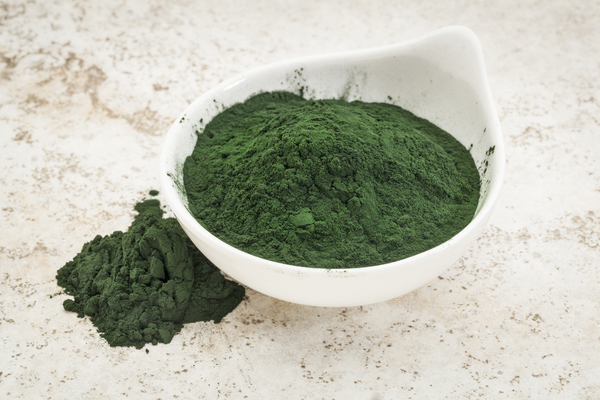Açaí

Açaí is an exotic fruit from South America that has become increasingly popular in recent years. It is often referred to as a superfood because it contains many nutrients, antioxidants and polyphenols that can have health benefits. But is açaí also suitable for dogs? In this article, you'll find out what açaí is, what its effects and side effects are and whether or not you should feed it to your dog.
What is açaí?
Açaí, pronounced assai, is the fruit of a palm tree in the swampy areas of the Amazon region in Central and South America. The fruit, which is difficult to harvest, is a staple food for the local inhabitants, while it is becoming increasingly popular in Europe due to its nutrient content and is used as a dietary supplement. Here they are classified as berries and can be recognized by their dark blue to purple-black color.
The berries consist of 90 percent non-edible seeds. Only the flesh and skin are suitable for consumption and further processing. The pulp is highly perishable and is therefore dried or freeze-dried to preserve the nutrients. It is then ground into powder or pressed into juice.
What are the benefits of açaí?
Açaí contains many valuable ingredients that can have various effects on the body. These include:
- Vitamins: Açaí is rich in vitamins A, C and E, which are important for the immune system, skin, eyes and cell protection.
- Minerals: Açaí provides calcium, iron, magnesium, potassium and zinc, which are needed for the bones, blood, muscles, nerves and metabolism.
- Fiber: Açaí has a high fiber content, which aids digestion and increases the feeling of satiety.
- Fatty acids: Açaí contains unsaturated fatty acids such as omega-3 and omega-6, which have an anti-inflammatory effect and support the cardiovascular system.
- Antioxidants: Açaí is one of the most antioxidant-rich fruits in the world. Antioxidants protect cells from free radicals that can be caused by stress, environmental toxins or ageing. They can also strengthen the immune system and reduce the risk of chronic diseases.
- Polyphenols: Açaí primarily contains anthocyanins, which give the fruit its dark color. These plant substances also have antioxidant properties and can also dilate the blood vessels and lower blood pressure.
What side effects does açaí have?
Açaí is generally well tolerated and has no serious side effects. However, some people may experience allergic reactions if they are sensitive to certain ingredients. Symptoms may include a skin rash, itching, swelling or breathing difficulties. In this case, a doctor should be consulted immediately.
If consumed in excess, açaí can also have a laxative effect or cause gastrointestinal complaints. This is due to the fruit's high fiber content. To avoid this, you should only consume açaí in moderation and drink plenty of water with it.
Can dogs eat açaí?
There is no clear answer to the question of whether dogs are allowed to eat açaí. On the one hand, açaí can have the same positive effects for dogs as it does for humans by improving nutrient supply, cell health and the immune system. On the other hand, açaí can also be dangerous for dogs if they eat too much of it or if they are allergic to certain ingredients.
The substance theobromine, which is contained in açaí, poses a particular risk. Theobromine is a derivative of caffeine and has a similar effect on dogs as chocolate, which also contains theobromine. This means that it can lead to symptoms of intoxication, which can manifest themselves in restlessness, trembling, palpitations, vomiting or convulsions. In the worst case, theobromine poisoning can even lead to death.
Therefore, it is not recommended to offer your dog açaí, especially not with other added ingredients that are rich in sugar, preservatives, colorants or others. If you want to do something good for your dog, you should rather use local berries, which also contain many nutrients and antioxidants, but no theobromine. These include blueberries, blackberries and strawberries, for example.
Açaí is a healthy fruit for humans that can have many health benefits. However, açaí is not suitable for dogs as it contains a potentially toxic substance called theobromine, which can lead to severe poisoning. Açaí can also cause allergic reactions or gastrointestinal problems in dogs. If you want to do something good for your dog, you should rather give him local berries, which are also healthy but do not contain theobromine.
Properties 5
Are you looking for other ingredients with a specific property?
Just click on them to find more.
If you notice any signs of hypersensitivity or poisoning in your dog, you should see your vet immediately. We are not a substitute for a vet, but we try to be as accurate as possible. Every dog reacts differently and we recommend you get a second opinion or consult your vet if in doubt.
Stay healthy and take good care of your four-legged friend!😊
Similar to Açaí
The goji berry, also known as wolfberry or buckthorn fruit, is the fruit of a plant from the nightshade family. It grows mainly in China, Tibet and Mongolia, where it has been used as a medicinal...
Spirulina is a blue-green algae that is one of the oldest living organisms on earth. It is found in salty lakes and waters and can feed itself through photosynthesis. Spirulina has a spiral...
Chlorella is a freshwater microalgae that is one of the oldest living organisms on earth. It has a high content of chlorophyll, the green pigment in plants that is responsible for photosynthesis....
Maca can also have some positive effects for dogs, especially for older or sick animals. Here are some of the potential benefits of maca for dogs: Maca can increase energy and stamina in dogs,...



